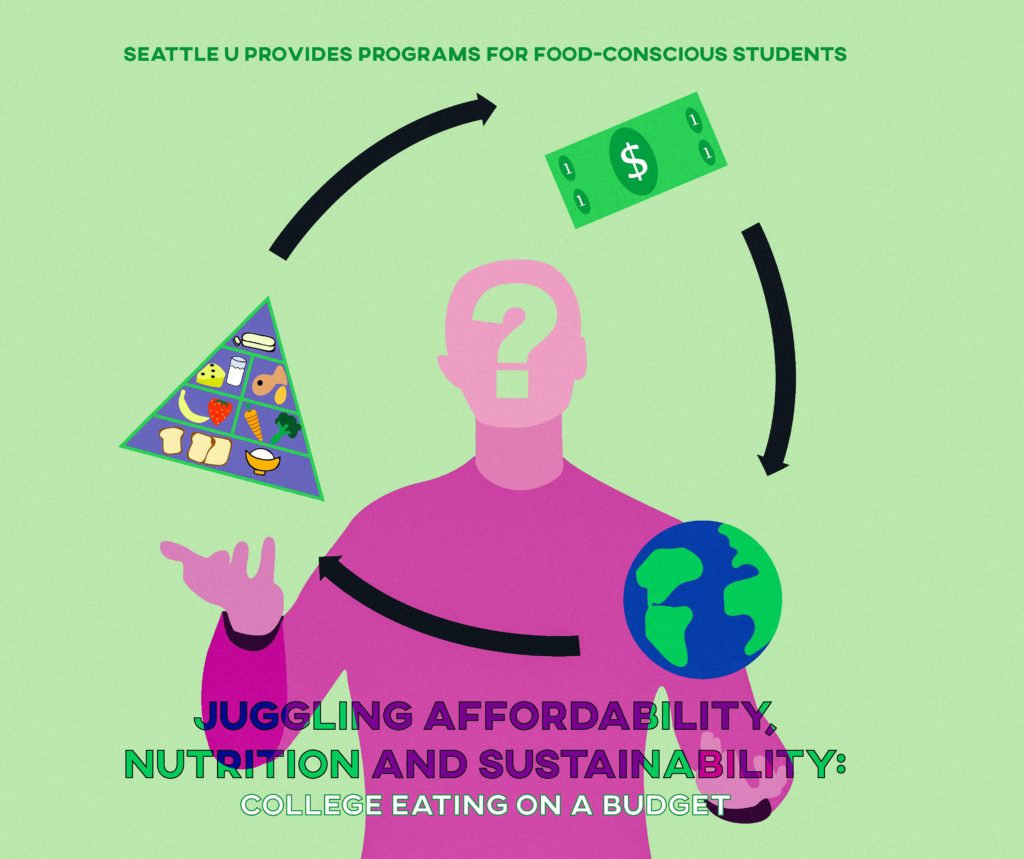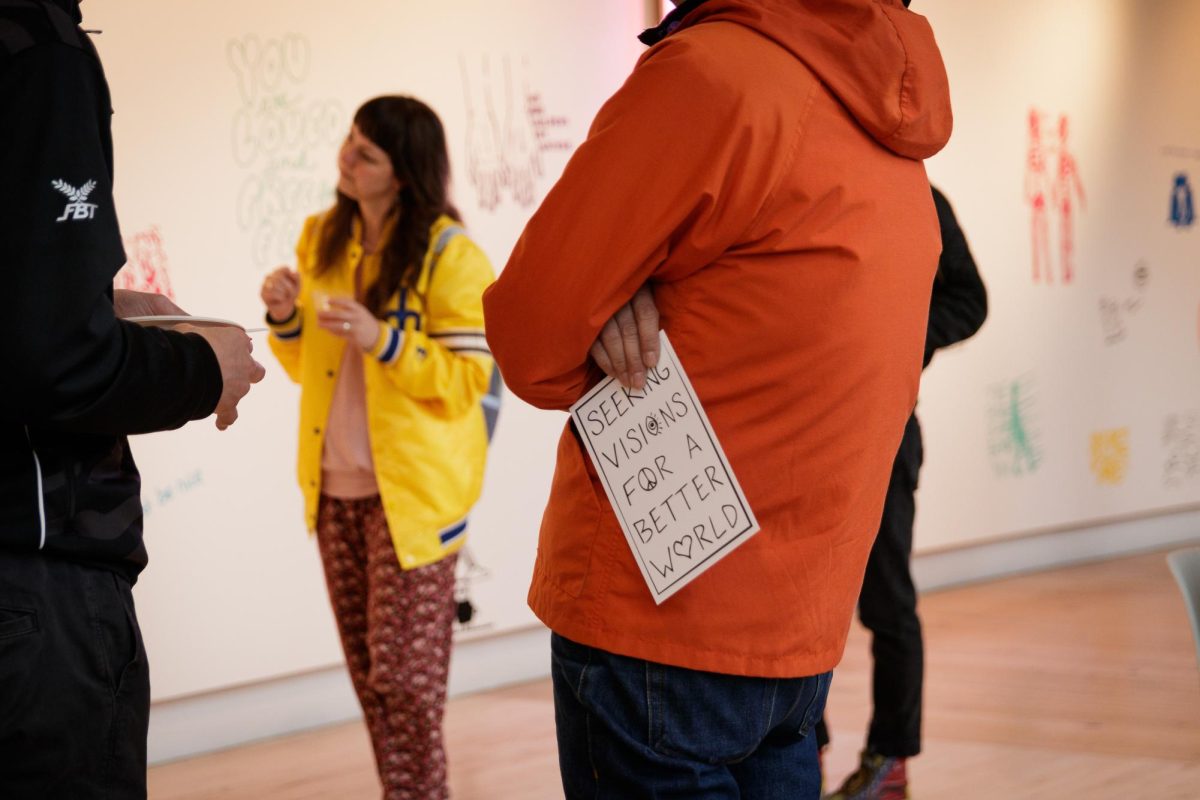With tuition costs rising nationwide, more college students are feeling the financial strain of trying to feed themselves on a budget. At one point or another, students may find themselves eating mostly ramen noodles or begging a first-year friend with a large meal plan surplus to go on a food run and mercifully stock them up on some frozen meals and snacks.
In an effort to prove that students don’t need to deprive their bodies of necessary nutrients, Christine Keff, head chef at Seattle University, visited the school on Oct. 24 to reveal how to eat sustainably on a budget. Following the theme of food insecurity, Keff showed students step-by-step how to prepare three different meals that had maximum flavor and minimum ingredients. Keff provided helpful tips along the way on how to select cheap but quality ingredients and how to capitalize on flavor with minimal ingredients for seasoning.
“Dried mushrooms, oregano, bay leaves, carrots, celery and onion: with just those ingredients, you can pack any meal with flavor,” Keff said.
Keff gave students pointers on what type of food to buy cheaply and how to use it most effectively in dishes. One suggestion she offered was to buy cuts of meat that most people don’t want to use, such as ham hocks and fish heads. She demonstrated dishes that used these cuts and told students about sustainability efforts happening at Bon Appetit, the company that provides Seattle U campus food.
Caroline Ferguson, the sustainability fellow for Bon Appetit, said that the topics of food justice and sustainable eating, go hand in hand.
“Eating in a way that is sustainable and reflective of a value of stewardship for the earth is also good for your body and your community,” said Ferguson.
Bon Appetit strives to adopt sustainable practices. The company is part of Food Lifeline. Food Lifeline is a program that takes surplus food from restaurants, kitchens, stores and farmers and then donates it to food banks. Bon Appetit is currently developing a meatless Monday program and actively participates in local food-justice-oriented organizations.
Members of Seattle U’s Health and Wellness Crew (HAWC) were also present at the cooking class, and they prompted a discussion with students about how food insecurity affects many areas of life such as physical, mental and emotional health. They described the importance of eating healthy and nutritious food in living a balanced and healthy life.
Azaria Mendoza, a member of Seattle U’s Food with Spirit club, described ways Seattle U students can eat cheaply and sustainably by utilizing the variety of food available on-campus.
“Food with Spirit is a club that works toward urban sustainability and agriculture,” Mendoza said.
Food with Spirit has plots and edible foods around campus for students to use, and they donate excess to local organizations such as the Chief Seattle Club, a shelter for indigenous communities. They also donate to Community Lunch and several other programs that provide food to community members in food.
A statistic from the World Food Programme states that about 1 in 9 people in the world do not have enough food to live a healthy life. Food insecurity is a global issue, but by taking small steps on campus and in the community, students can help themselves and others access healthy, sustainable and affordable food.
Right now, there is winter squash growing on campus. There are also apple and fig trees, along with other berries and edible plants, on campus that many students don’t know about, along with a greenhouse. An edible campus map along with photos and information about Seattle U’s community gardens can be accessed on Seattle U’s website.
Editor’s note: Caroline Ferguson is a former editor in chief at the Spectator.
Bailee may be reached at
[email protected]









![Jordan Ward [REVIEW]](https://seattlespectator.com/wp-content/uploads/2024/04/ward_1-1200x800.jpg)

![COWBOY CARTER [REVIEW]](https://seattlespectator.com/wp-content/uploads/2024/04/Screenshot-2024-04-10-at-7.37.52 PM-1200x699.png)
